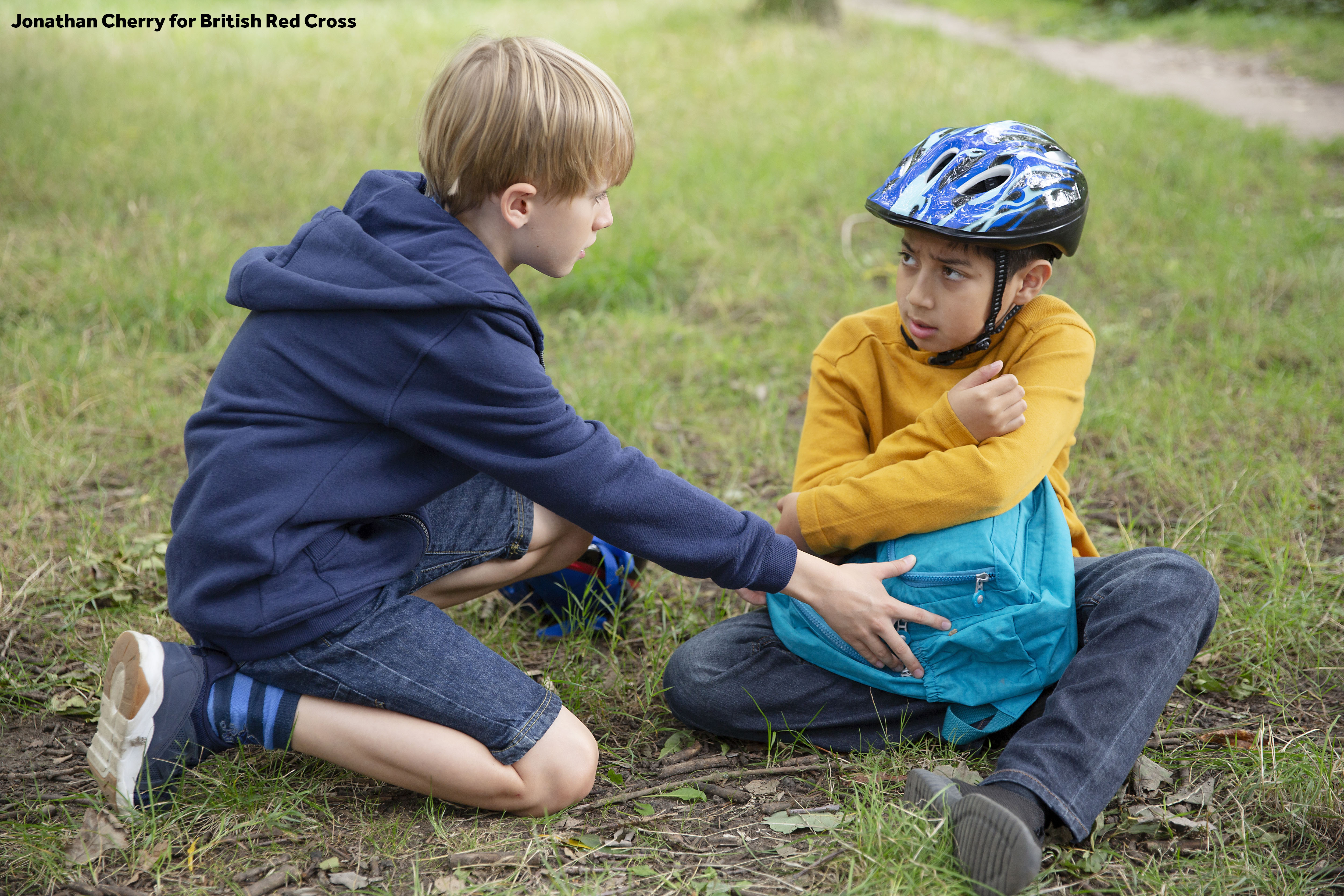If a first aid incident happened in front of you, what would you do? How would you deal with that situation?
This is the question Kara Smallman, a class teacher at Mayfield School in Cumbria poses to her pupils, encouraging them to contemplate how they might respond but also signalling that it’s important not to do nothing.
“It’s that whole thing isn’t it, getting over your panic,” says Smallman. “Your hands go cold, you don’t know what to do, this incident happened in front of you, and how do you how do you cope?
“And for most young people, it might be overwhelming, and that may be the biggest thing that you teach them, it’s not okay to do nothing, you have to do something. Whether that’s take a step back and go and get the phone for somebody, you’ve done something.
“It’s [looking at] that whole thing, that there are different parts to all of this, and you need to unpack it and put it to them in a way that that they feel comfortable and confident of doing things.”
In September 2020, it became compulsory for all state-funded schools in England to teach first aid and although this was delayed due to the pandemic, it is apt that this was due to come into effect the year we experienced a national health emergency.
On this podcast, sponsored by the British Red Cross, I discuss with Kara Smallman and Sarah Wardle, assistant headteacher at Benfield School in Newcastle-upon-Tyne, why teaching first aid skills feels more important than ever, and, why teaching young people first aid skills equips them with so much more than the knowledge of what action to take in a first aid situation.

In the conversation, Smallman and Wardle remark how through learning first aid skills, their students have grown in confidence and demonstrate greater empathy. And this translates across the curriculum:
“If you give children and young people a chance to develop confidence in their skills in one area then that affects others,” says Smallman. “I mean we’ve seen instances where children who are playing together and one might be struggling with Lego and the other one will come over and helps and that’s just from being given the opportunity to practice those help skills, but in a different way.
“So I mean we are talking about a completely area of learning, but that has a real impact on how they might approach another student, in the way they speak to them and things like that.”
Wardle talks about how using the British Red Cross resource, First Aid Champions has led to conversations about careers as many of her students didn’t realise the Red Cross offers support globally in times of national crises, such as earthquakes and tsunamis.
The classes have also inspired conversations around tolerance and diversity. “That whole concept of social, moral and cultural value as a human came about in the discussions of some of the older students, which I thought was really insightful,” says Wardle.
The conversation goes on to explore how teaching first aid skills boosts young people’s problem-solving skills, the importance of understanding certain aspects of learning might be triggers for students and teachers, and these sessions are upskilling young people for the future and allowing them to express themselves in a different way.
Listen here or on Apple, Spotify, Amazon and Google podcasts.
Unfortunately the sound quality at first is slightly below our usual standards but does improve so please bear with us.
![https://firstaidchampions.redcross.org.uk/become-a-first-aid-champion?utm_campaign=Community%[…]championsredcrossorguk%2Fbecome-a-first-aid-champion](https://assets.tes.com/content-attachments/s3fs-public/inline-images/British%20Red%20Cross.gif)
